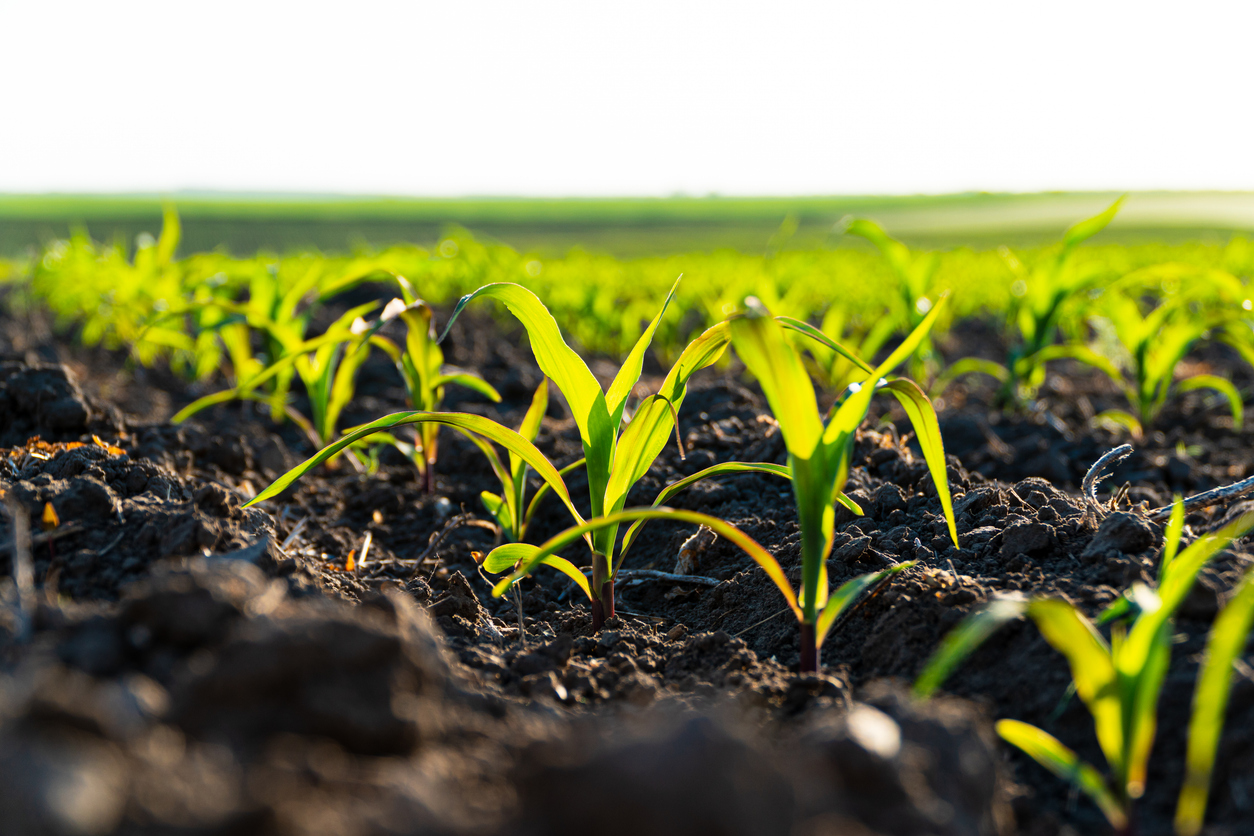
Gene-edited Soil Bacteria Could Provide More Nitrogen for Corn
January 22, 2025| |
A recent study from the University of Illinois Urbana-Champaign shows that gene-edited bacteria can supply the equivalent of 35 pounds of nitrogen from the air during early corn growth, which may reduce the crop's reliance on nitrogen fertilizer.
Connor Sible and his research team tested species of soil bacteria that can turn atmospheric nitrogen into plant-available forms. The edited versions boost the activity of a key gene involved in nitrogen fixation, making more of it available to plants. When applied at planting, the bacteria colonize plant roots, delivering the nutrient where it is needed most.
The researchers applied the bacteria at planting during three field seasons using standard agronomic practices for corn. They then measured nitrogen in plant tissues at the V8 stage (eight fully-collared leaves) and at R1 (silk emergence), as well as grain yield at the end of each season. The dilution of plant and soil stable isotopic nitrogen showed that additional nitrogen uptake in the inoculated plots was from the atmosphere, supplementing the soil and fertilizer supply.
The analysis showed that, across all nitrogen fertilizer rates, the inoculant increased corn vegetative growth, nitrogen accumulation, kernel number, and yield by 2 bushels per acre on average. At the moderate nitrogen rates, yield was up by 4 bushels per acre, which was equivalent to 10-35 pounds of nitrogen per acre of fertilizer.
For more details, read the article in ACES News.
| |
You might also like:
- Pocket K No. 46: Nitrogen Use Efficient Biotech Crops
- Teaching Corn to Fix Its Own Nitrogen
- Machine Learning Reveals Important Genes to Help Corn Grow with Less Fertilizer
Biotech Updates is a weekly newsletter of ISAAA, a not-for-profit organization. It is distributed for free to over 22,000 subscribers worldwide to inform them about the key developments in biosciences, especially in biotechnology. Your support will help us in our mission to feed the world with knowledge. You can help by donating as little as $10.
-
See more articles:
-
Plant
- Defra Secretary Confirms Timetable for Precision Breeding Act
- Study Explores Need for Confined Field Trials for Rapeseed in Japan
- ARS Research Team Boost Alfalfa's Salt Tolerance
- Researchers Test Dual-process Framework for Understanding Acceptance of Genetic Modification
- USDA ERS Report Shows Recent Trends on GE Crop Adoption in the US
-
Food
- Plate of the Future: Nutritious and Sustainable Novel Foods
- UMass Amherst Team to Develop New Plant-based Protein Food from Chickpeas and Peas
-
Environment
- Gene-edited Soil Bacteria Could Provide More Nitrogen for Corn
-
Read the latest: - Biotech Updates (February 11, 2026)
- Gene Editing Supplement (January 28, 2026)
- Gene Drive Supplement (February 22, 2023)
-
Subscribe to BU: - Share
- Tweet

